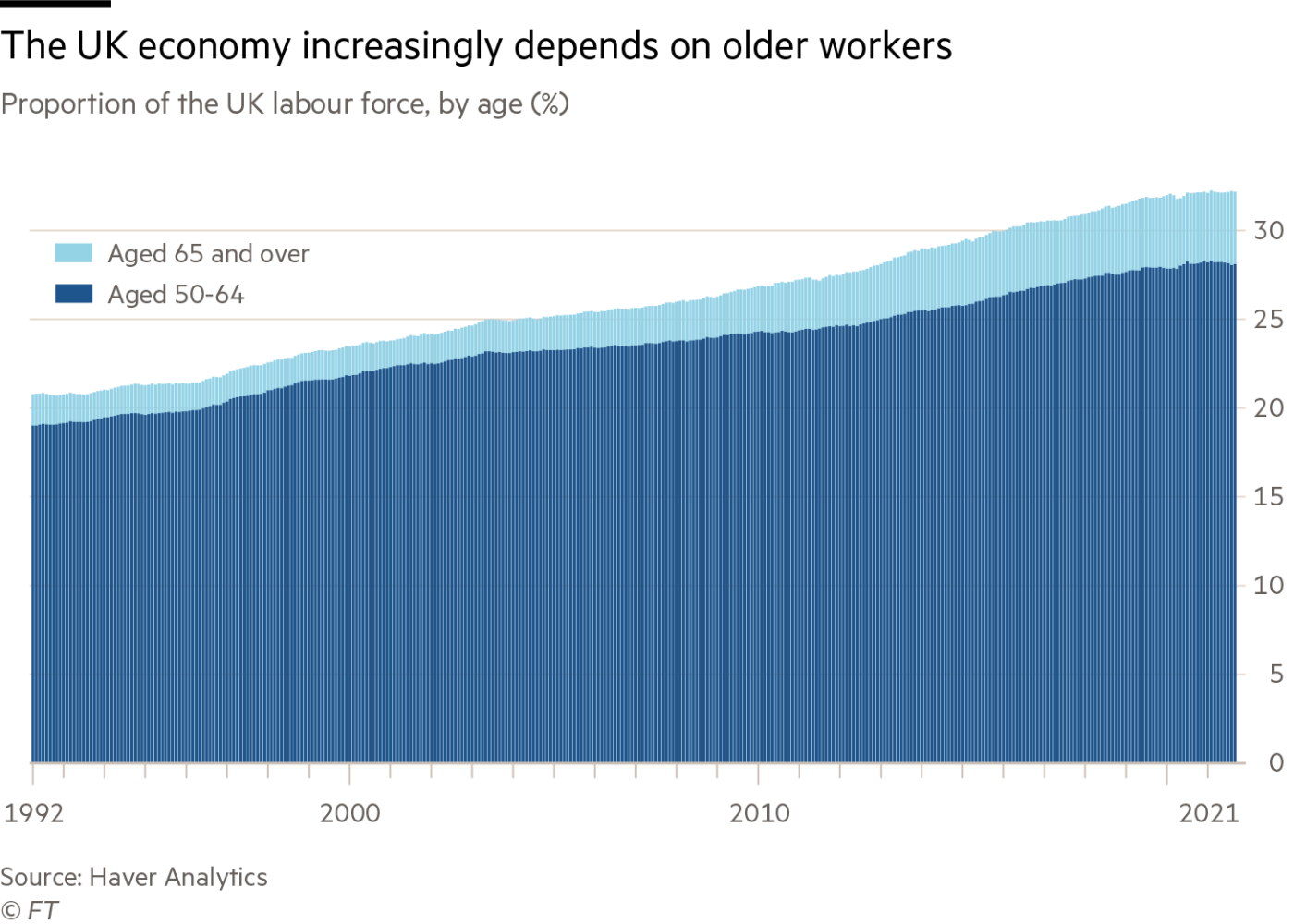This week, the UK joins the four-day working week revolution; plus, the ILO downgrades the labour market recovery forecast, and Venice’s new plan to attract workers. Read this week’s trends from the world of work.
January 21, 2022
Future of Work
Wellbeing
Future of Skills
The Venice city center isn’t what it used to be. That’s why the city is making a play to attract skilled remote workers and companies. Venice is trying to replace its tourism-heavy economy with remote workers and nomadic workers through their Venywhere program. But is the pandemic really a good time to diversify an economy?
Microsoft is betting big on the metaverse: they’ve purchased gaming company
Activision Blizzard, positioning them as a major rival to Facebook.
Studies show that half of today’s 5-year-olds will live to 100. Here’s what that means for the world of work – and the pace of work as we know it.
Oil prices reached a seven-year high this week, threatening to drive up global inflation amid supply woes.
The Great Resignation has left business leaders looking for new ways to attract and retain talent. Building a culture of corporate empathy could be one part of the solution.
We’ve got a full breakdown of all the top headlines you can’t miss this week.
The global economy might not recover as quickly as previously thought. This week, the International Labour Organization (ILO) downgraded their forecast for the labour market recovery in 2022. The new forecast looks a little more bleak: the organization expects a deficit in the hours worked globally equivalent to 52 million full-time jobs.
The project is still an improvement on the 2021 situation, but it remains 2% lower than the number of global hours worked pre-pandemic. Across the globe, unemployment is expected to remain above pre-COIVD-19 levels until at least 2023. Read more at the ILO.
What else matters this week?
Microsoft is betting big on the metaverse: they’ve purchased gaming company
Activision Blizzard, positioning them as a major rival to Facebook.
Studies show that half of today’s 5-year-olds will live to 100. Here’s what that means for the world of work – and the pace of work as we know it.
Oil prices reached a seven-year high this week, threatening to drive up global inflation amid supply woes.
The Great Resignation has left business leaders looking for new ways to attract and retain talent. Building a culture of corporate empathy could be one part of the solution.
We’ve got a full breakdown of all the top headlines you can’t miss this week.
#1. International Labour Organization downgrades labour market recovery forecast for 2022
The global economy might not recover as quickly as previously thought. This week, the International Labour Organization (ILO) downgraded their forecast for the labour market recovery in 2022. The new forecast looks a little more bleak: the organization expects a deficit in the hours worked globally equivalent to 52 million full-time jobs.
The project is still an improvement on the 2021 situation, but it remains 2% lower than the number of global hours worked pre-pandemic. Across the globe, unemployment is expected to remain above pre-COIVD-19 levels until at least 2023. Read more at the ILO.

#2. UK to trial four-day working week
Around the world, the idea of a four-day working week is gaining traction. Now, the UK is joining the movement with a six-month trial period of the four-day working week. Approximately 30 British companies have signed on to take part in the pilot; employees will not see a loss in pay for working one fewer day a week. However, they will be asked to maintain 100% productivity for 80% of their time.
“The four-day week challenges the current model of work and helps companies move away from simply measuring how long people are “at work”, to a sharper focus on the output being produced. 2022 will be the year that heralds in this bold new future of work,” Joe O’Connor the pilot programme manager for 4 Day Week Global, told Metro
The UK trial will run alongside similar trials in the US, Ireland, Canada, Australia, and New Zealand. Spanish and Scottish governments have already launched four-day work week trials. Read more at Metro
“The four-day week challenges the current model of work and helps companies move away from simply measuring how long people are “at work”, to a sharper focus on the output being produced. 2022 will be the year that heralds in this bold new future of work,” Joe O’Connor the pilot programme manager for 4 Day Week Global, told Metro
The UK trial will run alongside similar trials in the US, Ireland, Canada, Australia, and New Zealand. Spanish and Scottish governments have already launched four-day work week trials. Read more at Metro

#3. Can remote workers keep Venice afloat?
The newest remote work experiment is happening in Venice.
The historical city is facing a key problem: it’s historic center isn’t very populated anymore. But the new Venice-based project Venywhere is hoping to change that by attracting young, skilled and nomadic workers to their city.
Italian officials are looking to bring in young workers who want to live in Venice, not just visit. The move comes after similar program have cropped up in Italy and around the world. These cities, which have long relied on tourism to drive revenue, want to diversify their economies and help repopulate the historic centers.
The Venice project has been designed with freelancers and remote workers in mind, but they are also hoping to entice companies to send their teams to live in Venice for months-long stints.
“The pandemic has created a large population of highly skilled people who want to move,” says Venywhere founder Massimo Warglien, a professor of management at the Università Ca’ Foscari. “It’s a way of repopulating Venice.”
Unlike other programs, though, Venice will ask workers to pay a one-time fee to ease them into life in the city. That fee covers apartment viewing assistance from afar, help with the healthcare system, and more. Read more at Bloomberg.
The historical city is facing a key problem: it’s historic center isn’t very populated anymore. But the new Venice-based project Venywhere is hoping to change that by attracting young, skilled and nomadic workers to their city.
Italian officials are looking to bring in young workers who want to live in Venice, not just visit. The move comes after similar program have cropped up in Italy and around the world. These cities, which have long relied on tourism to drive revenue, want to diversify their economies and help repopulate the historic centers.
The Venice project has been designed with freelancers and remote workers in mind, but they are also hoping to entice companies to send their teams to live in Venice for months-long stints.
“The pandemic has created a large population of highly skilled people who want to move,” says Venywhere founder Massimo Warglien, a professor of management at the Università Ca’ Foscari. “It’s a way of repopulating Venice.”
Unlike other programs, though, Venice will ask workers to pay a one-time fee to ease them into life in the city. That fee covers apartment viewing assistance from afar, help with the healthcare system, and more. Read more at Bloomberg.

#4. Why is it considered okay to be ageist at work?
In 2018, Ian Tapping, a project manager at the Ministry of Defence, met with his human resources team. He had been in a dispute with his employer, and wanted to make a harassment claim.
In that meeting, his HR manager bluntly asked him when he intended to retire. Tapping, in his early 60s, quit his job and sued the company for age discrimination.
Last month, he won the case when a judge ruled that it is illegal to ask someone about their retirement plans unless they have brought it up themselves.
But survey after survey establishes the same thing: people over 50 find it much more difficult to get job interviews, and they are more likely to be eased out of existing jobs.
Although ageism is everywhere in the world of work, few victims take their case to court like Tapping.
“It’s still under the radar,” Lyndsey Simpson, founder of the employment website 55/Redefined, told the Financial Times, “because people don’t want to go on the record. They think they’ll be attacked and they think it will be career-limiting. I’ve lost count of the number of men who are turned down for jobs and are told: you are overqualified, or you don’t meet our diversity requirements.”
Read more at the Financial Times.
In that meeting, his HR manager bluntly asked him when he intended to retire. Tapping, in his early 60s, quit his job and sued the company for age discrimination.
Last month, he won the case when a judge ruled that it is illegal to ask someone about their retirement plans unless they have brought it up themselves.
But survey after survey establishes the same thing: people over 50 find it much more difficult to get job interviews, and they are more likely to be eased out of existing jobs.
Although ageism is everywhere in the world of work, few victims take their case to court like Tapping.
“It’s still under the radar,” Lyndsey Simpson, founder of the employment website 55/Redefined, told the Financial Times, “because people don’t want to go on the record. They think they’ll be attacked and they think it will be career-limiting. I’ve lost count of the number of men who are turned down for jobs and are told: you are overqualified, or you don’t meet our diversity requirements.”
Read more at the Financial Times.

#5. The professor who coined the term “The Great Resignation” shares 2022 workplace trends.
The Great Resignation” became the most-used phrase in 2021.
Anthony Klotz, an organizational psychologist and professor at Texas A&M University, first coined the phrase when he spoke with Bloomberg. But the professor never could have predicted how much that single phrase became a part of every headline for the rest of the year.
In a new interview with CNBC, Klotz shares three key predictions for the world of work in 2022:
Read more at CNBC.
Anthony Klotz, an organizational psychologist and professor at Texas A&M University, first coined the phrase when he spoke with Bloomberg. But the professor never could have predicted how much that single phrase became a part of every headline for the rest of the year.
In a new interview with CNBC, Klotz shares three key predictions for the world of work in 2022:
- The Great Resignation will slow down
- Flexible working will become the norm
- Remote jobs will become much more competitive
Read more at CNBC.




